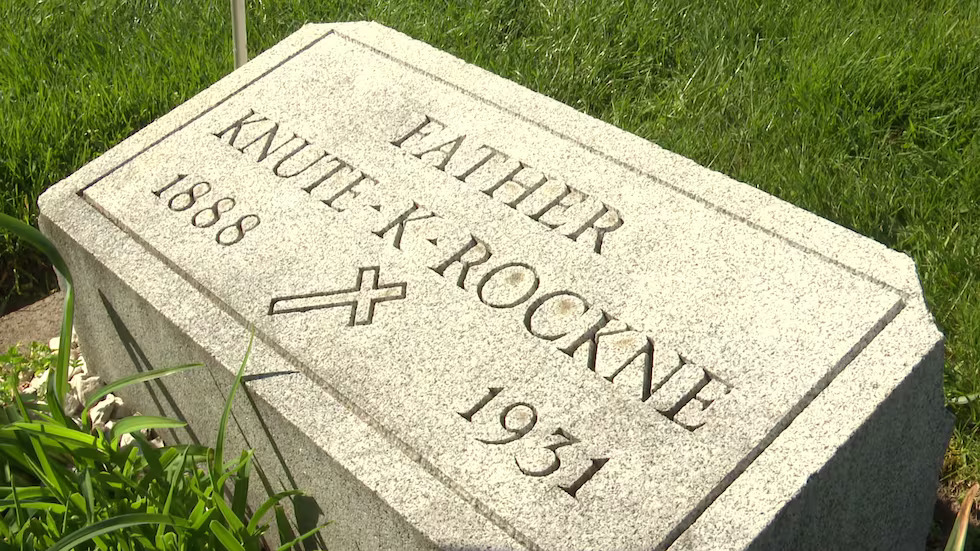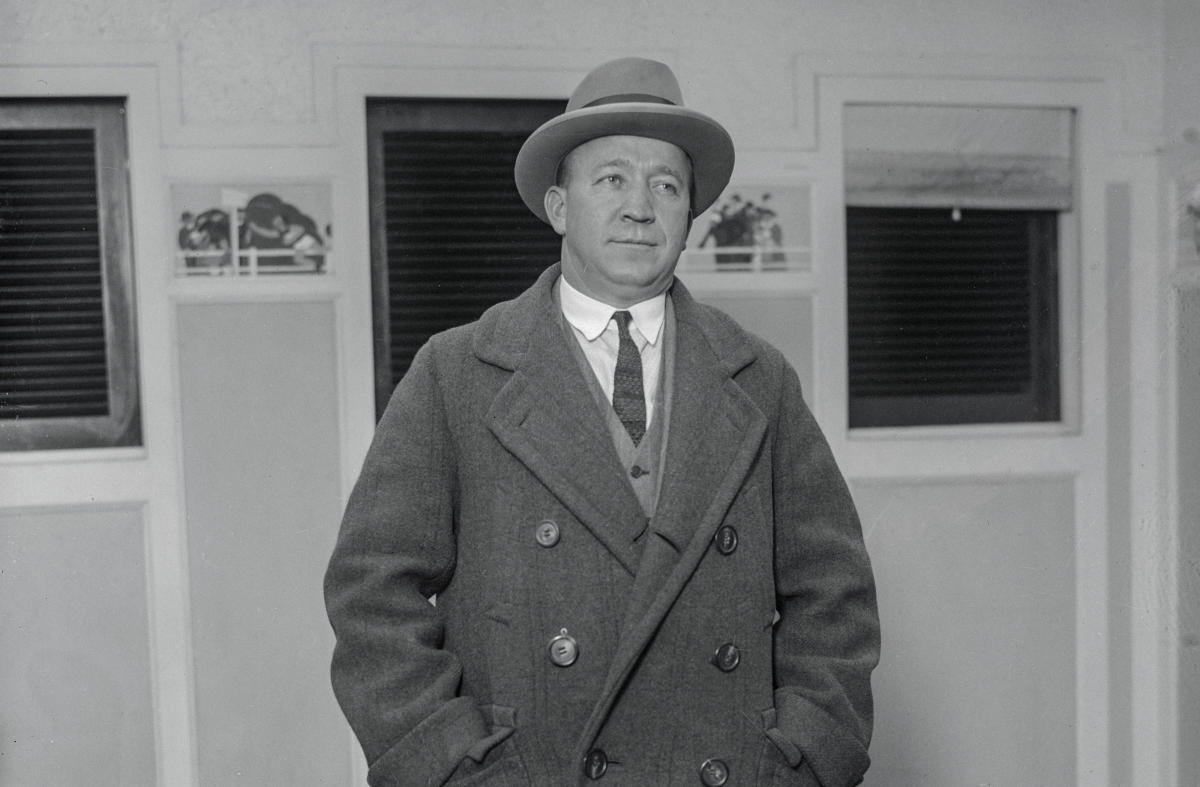Legendary Notre Dame football coach Knute Rockne, whose life was tragically cut short in a 1931 plane crash at the age of 43, had his grave relocated to Cedar Grove Cemetery at the University of Notre Dame.
This move came as a result of concerns raised by the Rockne family regarding the protection of his original burial site at Highland Cemetery in South Bend. Along with Knute Rockne, the graves of his wife, Bonnie, as well as his son Bill and grandson Timothy, were also transferred to the new location on campus.
The University of Notre Dame assisted in the disinterment of Knute Rockne’s remains and those of his family members, fulfilling the request of the Rockne family. A statement from Notre Dame expressed honor in facilitating the relocation and mentioned that prayers were offered for the repose of their souls upon their reinterment at Cedar Grove Cemetery.

Knute Rockne’s legacy as a football player and coach for the Fighting Irish, spanning from 1910 to 1930, is commemorated by this relocation, emphasizing his profound impact on the university’s athletic history.
Rockne’s burial at Highland Cemetery was initially chosen by his family due to the promise of perpetual care, which Cedar Grove did not offer at the time. However, concerns about the maintenance and respect for the gravesite led to the decision to move it to the campus cemetery.
Rockne’s granddaughter, Jeanne Anne, highlighted the lack of reverence observed at the original site, with items like shot glasses and cigar butts often littering the area during football season.
The relocation process began without a formal ceremony, with only a few family members present. The decision to forgo a grand spectacle was intentional, as Rockne’s grandson, Nils, expressed a desire to maintain a dignified atmosphere during the transfer. The process concluded with prayers led by a priest at Notre Dame, reflecting a solemn and respectful approach to honoring Knute Rockne’s memory and legacy.
Nils Rockne expressed gratitude that his grandfather’s final resting place would be at Notre Dame, ensuring perpetual care and reverence for future generations. The move symbolized a continuation of the university’s commitment to preserving the legacy of one of its most iconic figures in football history, affirming Knute Rockne’s enduring significance within the Notre Dame community.
